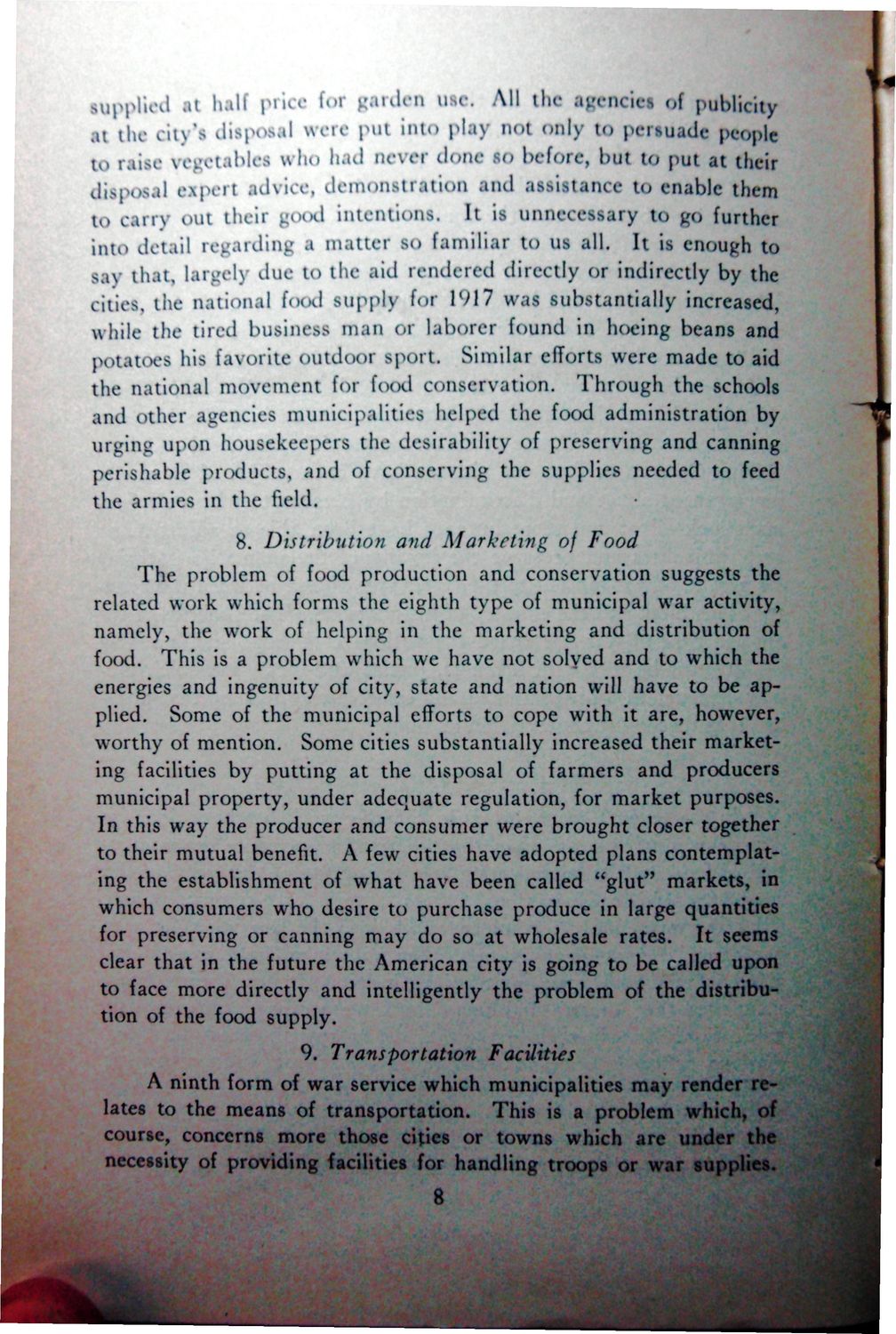| |
| |
Caption: War Publications - WWI Compilation 1923 - Article 3
This is a reduced-resolution page image for fast online browsing.

EXTRACTED TEXT FROM PAGE:
supplied at half price for garden use. All the aft-mi. of publicity at the city's di>p«*al were put into play not only to persuade people to raise vegetables who had never done so before, but to put at their dispottl expert advice, demembration and assistance to enable them to carry out their good intentions. It is unnecessary to go further into detail regarding a matter so familiar to us all. It is enough to say that, largely due to the aid rendered directly or indirectly by the cities, the national food supply for 1917 was substantially increased, while the tired business man or laborer found in hoeing beans and potatoes his favorite outdoor sport. Similar efforts were made to aid the national movement for food conservation. Through the schools and other agencies municipalities helped the food administration by urging upon housekeepers the desirability of preserving and canning perishable products, and of conserving the supplies needed to feed the armies in the held. 8. Distribution and Marketing of Food The problem of food production and conservation suggests the related work which forms the eighth type of municipal war activity, namely, the work of helping in the marketing and distribution of food. This is a problem which we have not solved and to which the energies and ingenuity of city, state and nation will have to be applied. Some of the municipal efforts to cope with it are, however, worthy of mention. Some cities substantially increased their marketing facilities by putting at the disposal of farmers and producers municipal property, under adequate regulation, for market purposes. In this way the producer and consumer were brought closer together to their mutual benefit. A few cities have adopted plans contemplating the establishment of what have been called "glut" markets, in which consumers who desire to purchase produce in large quantities for preserving or canning may do so at wholesale rates. It seems clear that in the future the American city is going to be called upon to face more directly and intelligently the problem of the distribution of the food supply. 9. Transportation Facilities A ninth form of war service which municipalities may render relates to the means of transportation. This is a problem which, of course, concerns more those cities or towns which are under the necessity of providing facilities for handling troops or war supplies. 8 r
| |